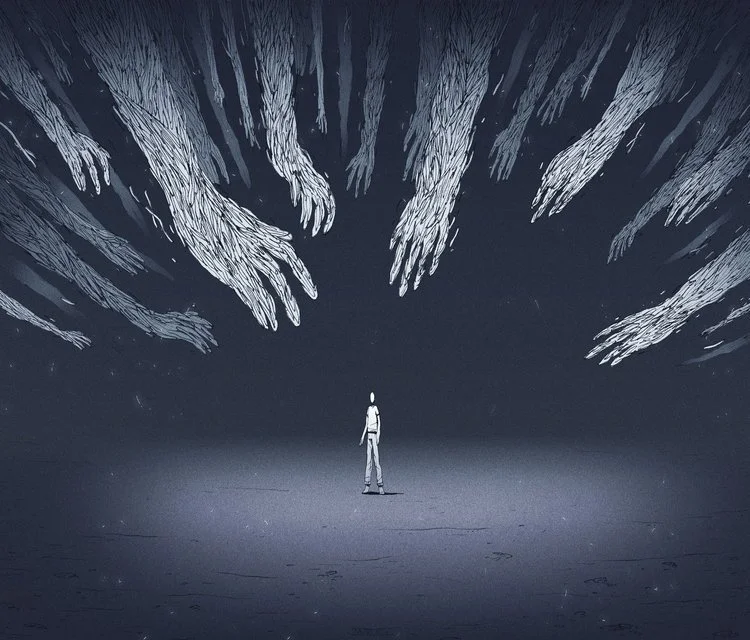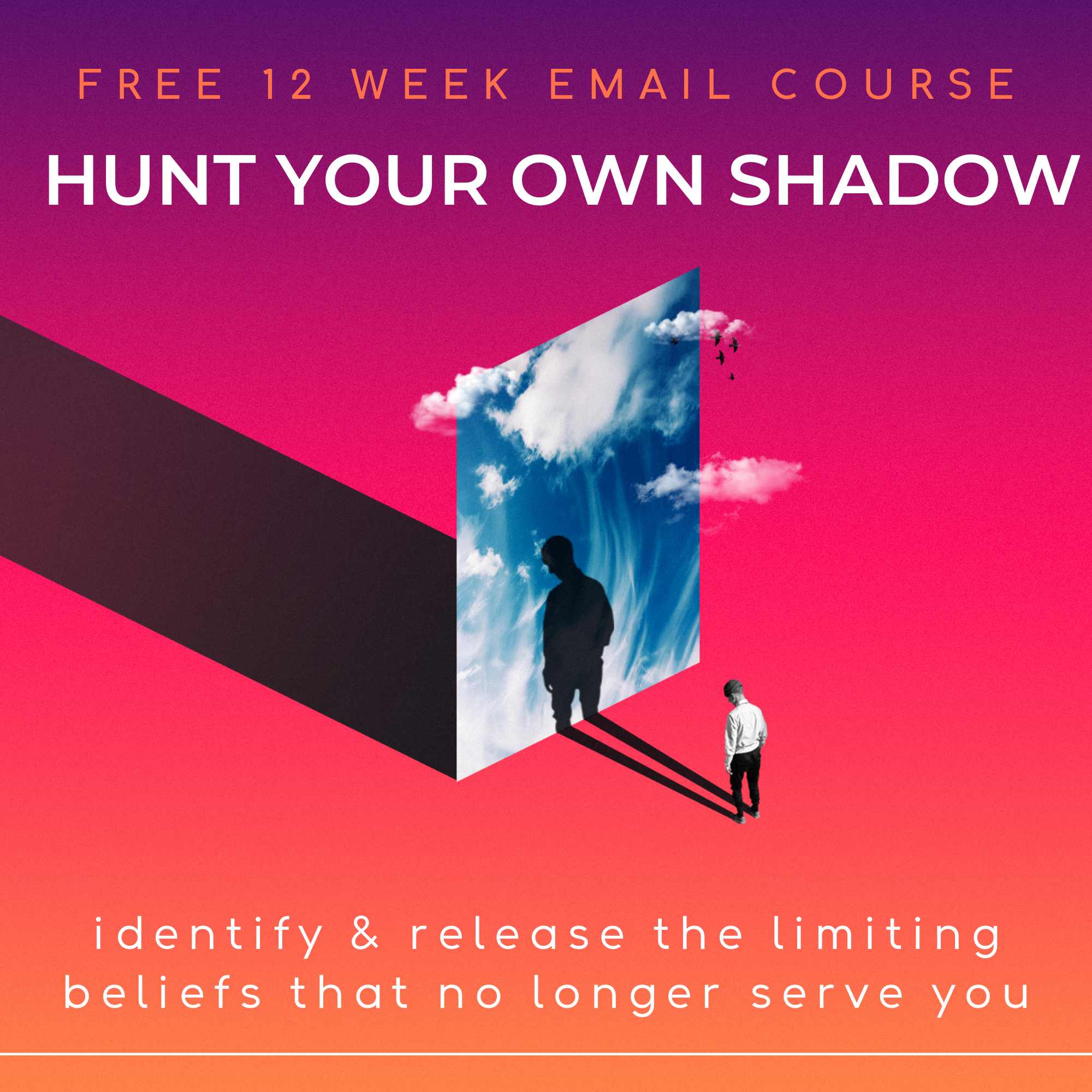Embracing Darkness To Better See The Light
/Contemplating Darkness
- Ch: 2.10 of How To Get Your Sh!t Together -
“There is suffering in this world. To live is to suffer.” – Buddha
There is no avoiding the fact that this chapter may come across as harsh to some readers. It will contain some suggestions that if taken on face value may seem offensive, insulting or uninformed. If you feel this way, please do continue reading to the end as I will hopefully clarify my position adequately, as well as potentially give you another tool to combat depression.
I wrote this chapter from experience, as the lessons contained within have been a massive component in handling my own battle with depression. I also want to make it clear that this chapter is just one part of a collection of tools that I use. If this tool was used on its own, it would be worse than ineffective, in fact it would be completely counterproductive to my mental health.
With the warning out of the way, let’s dig deeply into the concept of contemplating darkness.
Contemplating darkness involves exposing yourself to the entire range of human experience, both the good and the bad.
This practice will help you to detach from your own life and enable you to take a more objective look at it. To see the problems that you have and compare them with the problems that other people face. By ‘Contemplating Darkness’ I now have a deeper understanding of the true nature of human suffering. While this knowledge doesn’t help me to reverse a depressive episode that is in full swing, it does provide me with an increased levels of mental fortitude. The example of other people overcoming their challenges, helps me to overcome my challenges. If they can do it, so can I. It is empowering.
I almost didn’t include this chapter due to the reaction that you may be having right now. It feels like I am invalidating your suffering, or worse, not believing that you are in fact suffering much at all. Perhaps you feel like I have no right to suggest that your pain is any more or less than the pain of others, and that I clearly haven’t felt the depths of depression as you have. Or maybe you think that it is unfair to compare the symptoms of mental illness, with the life circumstances of other people – like apples to oranges. These reactions are duly noted, but I must urge you to continue onwards. You can thank or condemn me when this chapter ends.
To be clear, I am not saying that knowing that other people are suffering will help you to not suffer. Rather, I am saying that knowing the suffering of others, and how they overcome that suffering, will make you stronger. You will still get depressed, the symptoms will still feel the same, but you will be a stronger person who is dealing with those symptoms. Furthermore, this is not in any way a cure or even a treatment of the symptoms of depression at all. In fact I would suggest that this approach shouldn’t be used when you are in the middle of a depressive episode, as it may negatively impact you. Investigating the terror of the world when you are already vulnerable is a terrible idea!
I use the contemplation of darkness in a similar fashion as a gym workout. I do it when I am in a good place, with the goal of making me stronger. Just as the gym makes my body more resilient to injury, ‘Contemplating Darkness’ makes my mind more resilient to depression. Don’t get me wrong, I still get depressed, but I am not as easily triggered.
I dwell less on the small things, because I know just how small they really are.
Contemplation Time
I live in a first world country. I have access to hot running water, electricity, health care, refrigeration, internet, a bank account, an uncorrupted police force, fire and ambulance services, sewerage and waste systems, and a functioning government.
I don’t live in immediate fear of terrorism, violence, or disease. I don’t need to worry about invasion or war in my town. I know where my home is, and where my next meal will be. I have free speech, and I am basically free to do and be whatever I desire to be. Within reason I can dress how I choose, date whomever I like and work in whatever career pathway I want. There is a safety net in place that will catch me if I fall. Even if I lose my limbs, my job, my family, or even my mind, I will be cared for by my society.
The majority of the world’s population is not so well off. According to the World Health Organisation, One out of every seven people (1.2 billion) are currently living in extreme poverty (less than $1 per day). A UNHCR survey has found more than one in every 112 people (65 million) are currently displaced due to the impact of war. Such large numbers can be hard to put into perspective, but it is clear that there is a significant amount of extreme suffering occurring.
If you can read these words, and are in a house with a light on, you are richer than the majority of the world.
Being ‘richer’ of course doesn’t mean that you are ‘happier’ or in a better mental state. However it does mean that there will be significantly less stress placed upon you comparatively, and it is undeniable that stress leads to increases in mental affliction.
Money doesn’t buy happiness, but it does reduce stress.
The richer you are, the easier it will be to provide yourself (and your family) the necessities of life. You will be more able to recover from a health crisis, or from an unexpected emergency. You will be able to afford yourself more leisure time as well as access increasing amounts of medical treatments.
The approach that I just described is very broad. While statistics and facts can put your life into perspective, there is often little emotion attached to them. It is simply hard to relate to numbers on a page. To overcome this issue I have taken to learning about other cultures through direct travel, documentaries as well as through reading biographies and listening to the stories of other people.
The more I expose myself to other possibilities of life, the more I can detach from the issues in my own. It enables me to put a human face on the statistics and to better connect to them. Reading about the struggles and accomplishments of others helps me to grow, and talking about my own issues and past, helps me to heal. This is mutually experienced by all parties involved. Sharing and hearing personal stories can be an exceptionally healing process.
Being Grateful
If I find myself becoming overly upset over something in the moment, I like to consider the things that I need to be grateful for in order for that thing to be happening in the first place.
Let’s say that you decided to stop at your favorite local café for a coffee and pie breakfast, to be consumed on your way to work. It is not your usual barista serving, but a trainee who is clearly struggling to man the machine. As you are ordering, you are interrupted by the clamor of a previous customer who is loudly informing the manager that their order was made incorrectly. A touch shaken, the new barista takes an exceptionally long time to make your order. It took so long in fact, that you end up getting caught in peak hour traffic.
As you enter the highway, you feel your frustration rising as your speed decreases. The sudden braking of a car up ahead, causes you to need to do the same, only you forgot to secure your cup, and are now dealing with a not so indiscrete spill on your pants.
It is almost bumper to bumper. Looking at your watch, your anxiety begins to rise. You are running late. As an on ramp approaches, you edge closer to the car in front to block off the person attempting to merge. You begin to run through in your mind what to say to your boss upon arrival. Should you call ahead and let them know, or risk it and hope that the traffic will clear and you will arrive on time?
No doubt this situation would be quite stressful, but in this scenario, there is still so much to be grateful for.
- There is no war or famine impacting your country
- You own and can afford a car that is running
- You live in a country with road rules and developed infrastructure (even if there is always room for improvements)
- You have a job
- You are healthy enough to be driving and working
- You live in a society that is healthy enough to support a peak hour traffic jam on the way to work
- Coffee, sugar and other goods that are sourced globally are easily and cheaply available. You get the point. If you are getting mentally afflicted by something, take the time to consider what had to go right in order for you to even have that problem in the first place. It won’t stop the suffering, but it will help to put it into perspective, enabling you to better address it.
—
Frequently Asked Questions
Q) Couldn’t contemplating darkness actually cause or trigger depression?
A) Most definitely, that is why I stressed the importance of doing this exercise when you are in a good place as a preventative measure for the future, rather than during an episode of mental affliction. You know yourself better than anyone, so if you feel like this will be too much for you, give it a miss.
Q) I can’t move on from the concept that other people’s suffering does nothing to change my own. All this exercise has done is let me know that others also suffer. How can this help?
A) It will help you by providing you with some detachment and perspective. For example, it would be terrible to break your thumb in an accident. It may impact your ability to perform a variety of activities as well as you used to. However, compared to a broken arm, it is a relatively mundane injury. What about compared to an amputated arm? What about compared to paralysation? Yes those thoughts won’t stop the pain of the broken thumb, or help your ability to perform as you once did. But they put the broken thumb into context. That context may help you to deal with the suffering that you must now endure.
Q) What if contemplating other people’s suffering is very overwhelming for me and actually one of the reasons that I am depressed?
A) Always guard your mental state first. If you find yourself already dwelling on the suffering of others to such an extent that your mental state is negatively impacted, don’t dig deeper. This is one of the main reasons that I stopped watching the news. I found that the constant barrage of negativity wasn’t positive for my mental health. Only expose yourself to the things that you can handle and that are having an overall positive impact on your mental state.
Resources
Extreme Ownership - Jocko Willink
Hard Core History Podcast - Dan Carlin
Slumming it’ - BBC & Kevin McCloud
Sapiens - Yuval Noah Harari
You Are Not So Smart, David McRaney
The Share Your Story Project
Summary
By exposing yourself to the complete range of human experience, you can better put your own life into perspective.
Read another chapter from How To Get Your Sh!t Together
Out now: eBook, Paperback & Audible



